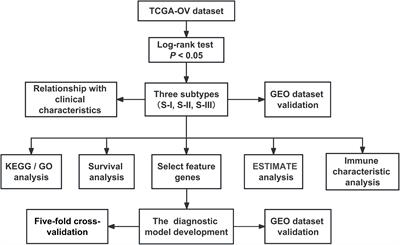EDITORIAL
Published on 08 Apr 2024
Editorial: Harnessing tumor microenvironment for gynecologic cancer therapy

doi 10.3389/fimmu.2024.1407128
- 764 views
- 1 citation
10k
Total downloads
27k
Total views and downloads
EDITORIAL
Published on 08 Apr 2024

ORIGINAL RESEARCH
Published on 14 Mar 2024

REVIEW
Published on 01 Feb 2024

CASE REPORT
Published on 29 Jan 2024

REVIEW
Published on 18 Dec 2023

ORIGINAL RESEARCH
Published on 07 Dec 2023

MINI REVIEW
Published on 23 Oct 2023

